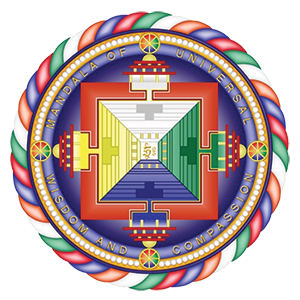Working in interfaith, multicultural contexts and across multiple “axes of difference” is both fulfilling and challenging for many Buddhist chaplains. Buddhist chaplains describe how their experience as a religious minority – in the United States generally, as well as in clinical training programs and in their institutional settings among staff and those served – makes them sensitive to the needs of other minority groups (religious, racial, gender, sexual orientation, etc.) and intersectionality.
Additionally, Buddhadharma presents practices and wisdom on multiple topics that support working for the benefit of all, including diverse others. Buddhist chaplains report considering it part of their role to be advocates for social justice and dismantling oppression. Buddhist chaplains also may have strong capacities to serve non-religious, “not religious but spiritual”, and non-theistic people, and those who previously experienced harm in religious contexts.
Buddhist chaplains, however, also themselves at times face the challenges common to many minority and oppressed groups. They are strongly urged to connect with other Buddhist chaplains and mentors for support. Many are intentionally proactive in their self-care and seek multiple methods of coping sustainably with the isolation of being the only Buddhist in the room, the recipient of discrimination, and working within inequitable systems and hegemonic Christian contexts. Buddhadharma has tools to offer for self-compassion, equanimity, ethics, healthy boundaries, mindful awareness, which emergent leaders in the field of Buddhist chaplaincy are mining and explicitly leveraging for Buddhist and non-Buddhist professionals.



Leave A Comment